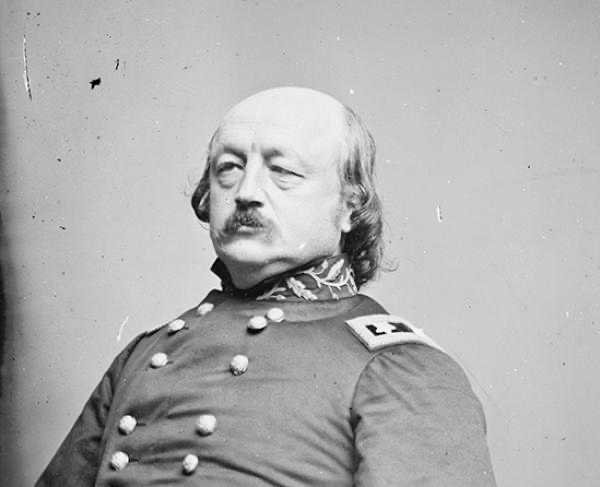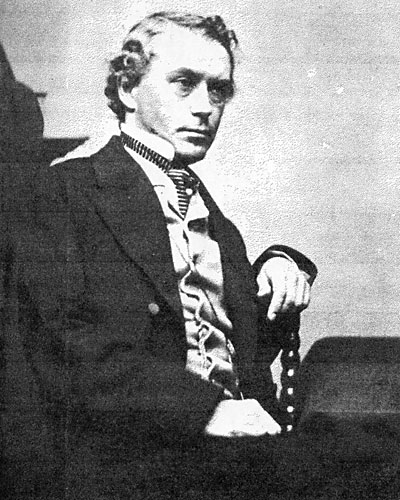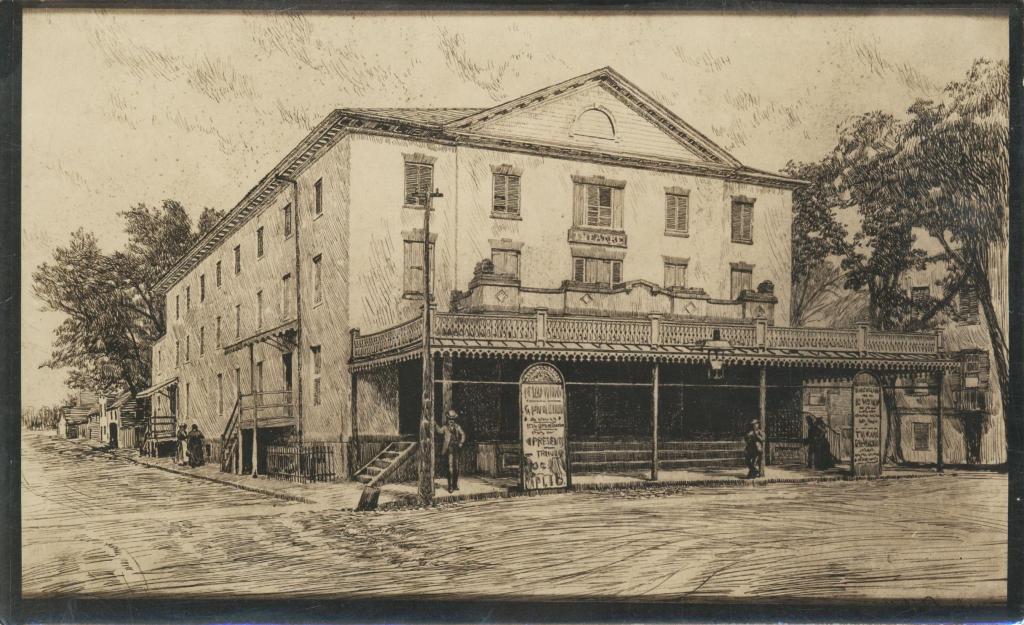-
Constitution Sunday: “Publius,” The Federalist LI [James Madison]
Independent Journal (New York) February 6, 1788 “But what is government itself but the greatest of all reflections of human nature?” This rhetorical question, which James Madison posed, is one that governments throughout the world—throughout history—have answered by showing that even the best-intentioned government fails where it does not take human nature into account.
-
The Civil War: Jefferson Davis: Message to the Confederate Congress
April 29, 1861 With only a few weeks at the helm of the Confederate government, president Jefferson Davis and the Confederate Congress had cause for concern—but also cause for inspiration. The whole of the South (and the whole of the North) was animated: men and women were mobilizing; making their preparations to contribute to the…
-

The Civil War: Benjamin F. Butler to Winfield Scott
One night in late May 1861, “three negroes”—who said they were field hands, slaves—delivered themselves to the picket line at Fort Monroe in Virginia. Fort Monroe, sat on the peninsula between the York River and James River, had at its helm Brigadier General Benjamin F. Butler. The fugitive slaves had come to the fort to…
-
The Civil War: William Howard Russell: from My Diary North and South
April 17, 1861 In the weeks and months leading up to the fall of Fort Sumter, the South had been brimming with excitement for the future. Charleston, South Carolina—with newly taken Fort Sumter in its harbor—was leading the South into that future both through its rhetoric and through its actions. Enthusiasm was abound for what…
-

The Civil War: George Templeton Strong: Diary, April 13-16, 1861
Throughout the months leading up to the firing on Fort Sumter, there was widespread wonder about how the country would react to such a provocation; it was bound to be a cleave dividing the country and also its communities. Generations later—with the accordion of events neatly folded and the result of the war known—it would…
-
The Civil War: Abner Doubleday: from Reminiscences of Forts Sumter and Moultrie in 1860-’61
There had been talk that, if a civil war began, it would begin at Fort Sumter. Sat in the harbor near Charleston, South Carolina, it was a fort that the United States held. Indeed, it was here that the first shots of the war would be fired. It was one thing to read about the…
-

The Civil War: Alexander H. Stephens: “Corner-Stone” Speech
March 21, 1861 In Savannah, Georgia, at its Atheneum—a theater for shows and oratory—the vice-president of the Confederacy, Alexander H. Stephens, came to speak about the events leading up to states seceding from the Union and forming the Confederacy. The pace of these events had been swift and sure to cause consternation with questions abound…
-

The Civil War: Robert E. Lee to George Washington Custis Lee
January 23, 1861 While Robert E. Lee was serving as the acting commander of the Department of Texas at Fort Mason, in Texas, he wrote to his son George Washington Custis Lee of the events unfolding in the east—southern states beginning to secede amid antagonism from the north.
-
The Civil War: Henry Adams to Charles Francis Adams Jr.
January 8, 1861 A few weeks after Henry Adams wrote to his brother Charles Francis Adams Jr. about the scenes playing out post-election in Washington, D.C., he wrote again—this time about the potential for warfare to soon begin.
-
The Civil War: Jefferson Davis: Farewell Address in the U.S. Senate
January 21, 1861 United States Senator Jefferson Davis, of Mississippi, rose on the floor of that august chamber the morning of January 21, 1861 to make an announcement. It would not be one pertaining to some Senate bill, or a resolution, but instead an announcement that he was leaving the Senate.
-
The Civil War: Catherine Edmondston: Diary, December 27, 1860
December 27, 1860 Catherine Edmondston lived with her husband in North Carolina, and they operated a plantation there. During a visit to Aiken, South Carolina, to see her parents, she became a witness to the action surrounding South Carolina’s secession from the Union.

